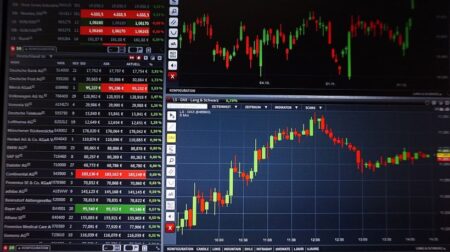Introduction
Crypto exchanges are split into two major systems: centralized exchanges and decentralized exchanges. As of now, centralized systems are more common and rule the crypto exchange networks. However, decentralized exchange systems are slowly growing in popularity.
Decentralized exchange systems aka DEXs enable peer-to-peer trading through smart contracts to validate trades without involving a third party. However, not all DEX systems rely on the same approach. In this guide, we will discuss more about decentralized exchange systems.
Decentralized Exchange Systems
Earlier versions of decentralized exchange systems relied on order books to keep track of open buy and sell order transactions. Ideally, the differences in prices determine the order book including the current market rates.
Decentralized exchange systems will allow traders to make and complete transactions without the need for any third parties. If you’ve been on crypto platforms for a while, why not try these out? In summary, the DEX systems will allow users to make immediate trades at cheaper rates than what most centralized exchange platforms offer.
Centralized Exchange Systems
Centralized crypto exchange platforms often require users to load their wallets with cash. Users can then make trades on the platform. These systems control the private keys required by both buyers and sellers to access their funds. Most seasoned crypto investors avoid using wallet services because they do not get full control of their crypto assets.
With time, there have been several heavyweight crypto investors asking people to avoid exchange platforms that control their private keys. As mentioned earlier, investing in a private wallet service should be a consideration, especially if you own a significant number of crypto coins.
Major Features of Decentralized Exchange Systems
Most crypto investors want to have complete autonomy over their savings or assets. This means being able to own their private keys. Decentralized exchange systems have implemented this feature where traders can exchange crypto on a distributed ledger. Users also have complete control over their funds and private keys.
Another feature worth noting is the low trading fees. In fact, there is talk that trading fees on decentralized systems could be free. Comparing this to what most centralized systems offer, decentralized systems will lower transaction charges via a new feature called automated market makers (AMM).
Decentralized exchange systems will also offer better privacy and security. For one, most centralized exchange platforms are often vulnerable to hacker attacks. Centralized systems use hot wallet systems to store their users’ funds. In case of a successful attack, the registered users will lose all of their assets. Users do not have 100% privacy when trading on centralized systems.
The Bottom Line
Decentralized systems will shake up how crypto exchange systems work. However, there are several drawbacks to this system. Centralized systems are considerably easier to use compared to the DEX system. In addition, when using centralized systems, if you lose your login info, you can quickly create a new password and retrieve your assets. For DEX systems, losing your seed phrase means that your funds will get lost in the network and you will not be able to retrieve them.







